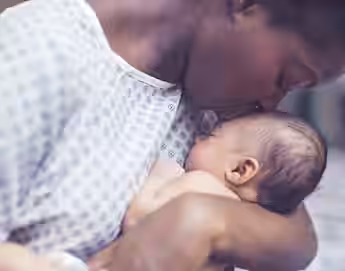In a move welcomed by Fieldfisher's medical negligence team, the Health and Social Care Select Committee, chaired by former Health Secretary Jeremy Hunt, announced this week that it will investigate why maternity incidents continue to occur in NHS hospitals and what can be done to improve safety.
This is a direct result of shocking evidence of long-term, substandard care at Shrewsbury and Telford Hospital Trust and East Kent Hospitals University Trust, currently being investigated, and the results of Dr Bill Kirkup's inquiry into University Hospitals of Morecambe Bay in 2015.
The Committee will also examine the existence of 'blame culture' within the health service and its impact on the way departments and individual practitioners advise and treat patients.
It comes 5 years after the Chief Executive of NHS England, Simon Stevens, announced a major review of maternity services as part of the NHS Five Year Forward View, and a National Maternity Review was published in 2016. This also identified safety and quality concerns, under-reporting of incidents, and missed opportunities to prevent stillbirths.
We have long been lobbying for increased funding to implement better training and more efficient procedures to improve safety for babies and mothers in hospitals, not least because so many of our cases involve basic failings in care, for example, interpreting CTG monitoring and recognising other indications that a baby is in distress. Delays in reacting to fetal distress and expediting delivery account for the majority of our cerebral palsy cases.
Baby Lifeline, the mother and baby charity, with the support of organisations, including the Royal College of Midwives and the Royal College of Obstetricians and Gynaecologists, has also continued to call on current health secretary Matt Hancock to reinstate maternity safety training for NHS midwives and doctors, introduced in 2016 but inexplicably scrapped after just one year.
Judy Ledger, founder of Baby Lifeline, was reported in the Independent as welcoming the Committee's inquiry. She said: "We owe it to mothers, babies and healthcare professionals to take urgent stock of where we are with maternity safety, review the actions already being taken to make progress, and take steps to address any gaps and increase the pace of change needed."
The Royal College of Midwives (RCM) and the Royal College of Obstetricians and Gynaecologists (RCOG) said they would submit joint evidence to MPs.
As Chair of the Committee, Jeremy Hunt, who ordered investigations into Morecambe Bay and Shrewsbury and Telford while he was Health Secretary, said: "The death of a baby when something goes wrong is a tragedy for a family. When we've seen a pattern of baby deaths, we must be confident that failings that contributed to them have been addressed and lessons learned. However, the safety of our maternity services continues to be a matter of concern."
Dr Edward Morris, president of the RCOG, said: "We must continue to learn from mistakes, improve services and support women and their families who have suffered. This inquiry is an important step to doing just that. The RCOG continues to be absolutely committed to improving maternity care across the UK."
So, positive news. I and my colleagues in the medical negligence team are hopeful that the investigation will prompt vital and long overdue changes to the way maternity services are funded to keep mothers and babies safe and to prevent further tragedies of the worst kind. In the meantime, we will continue to fight for our clients who have suffered harm as a result of negligent treatment.

